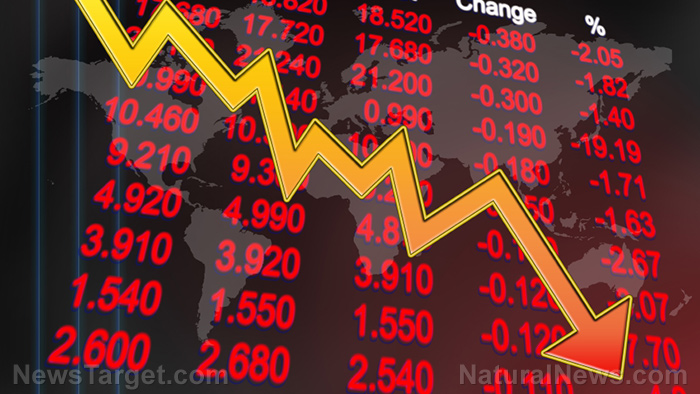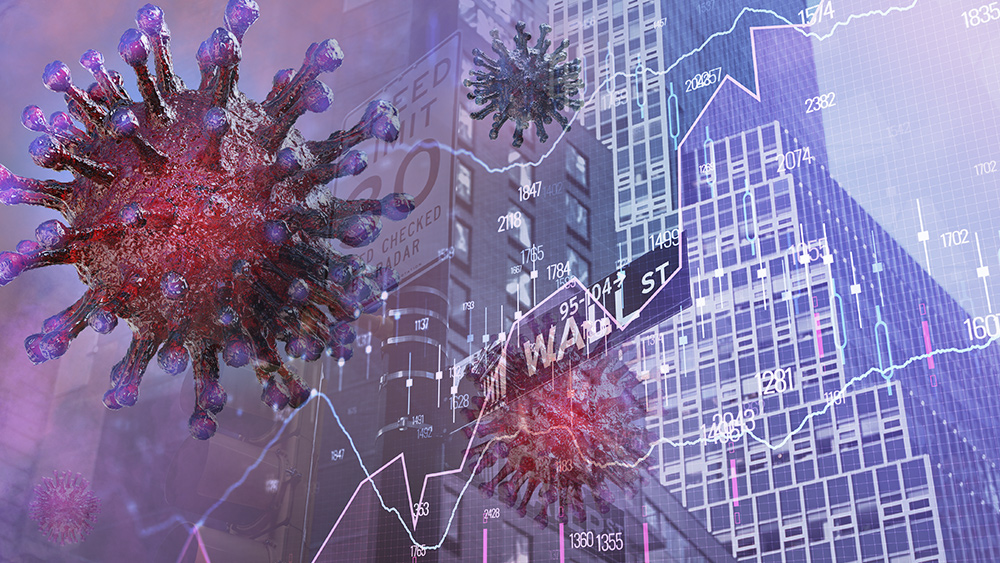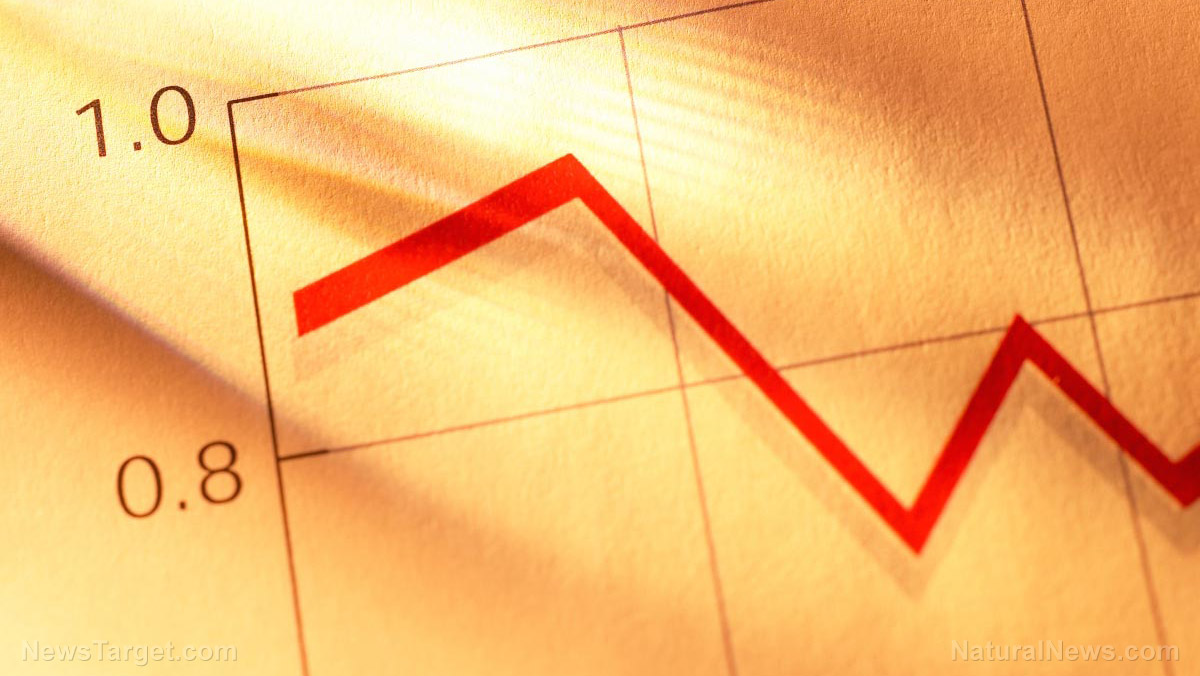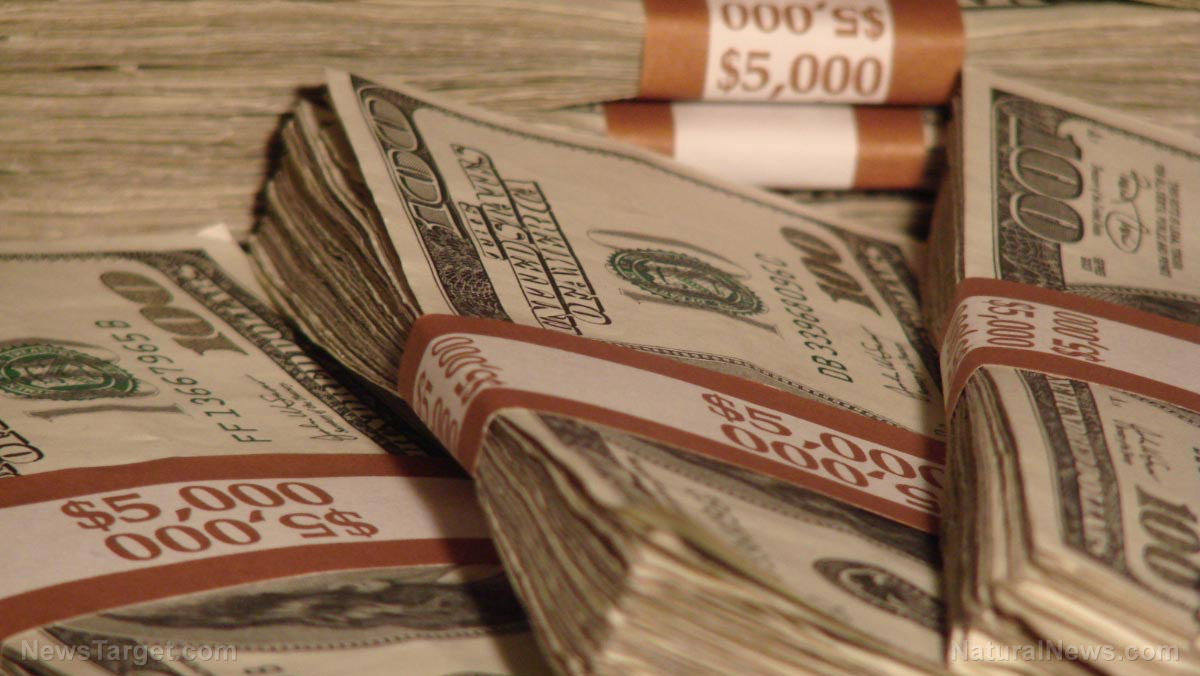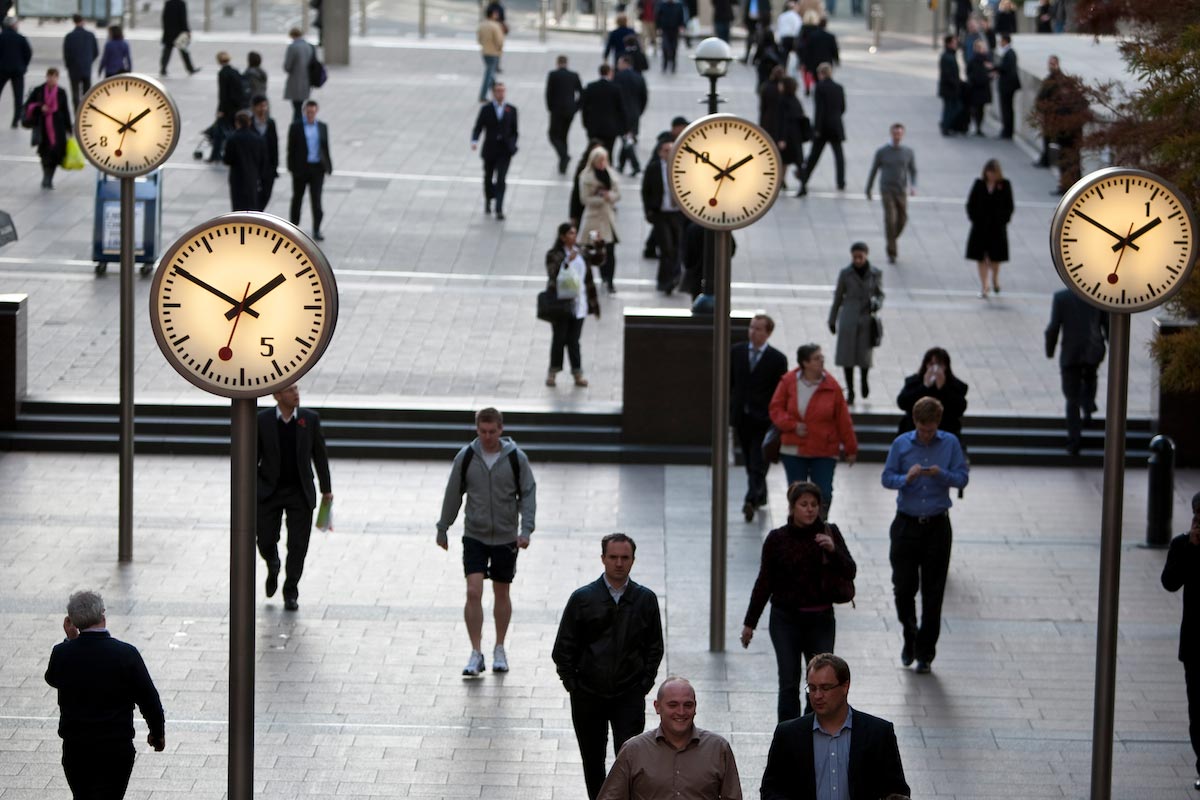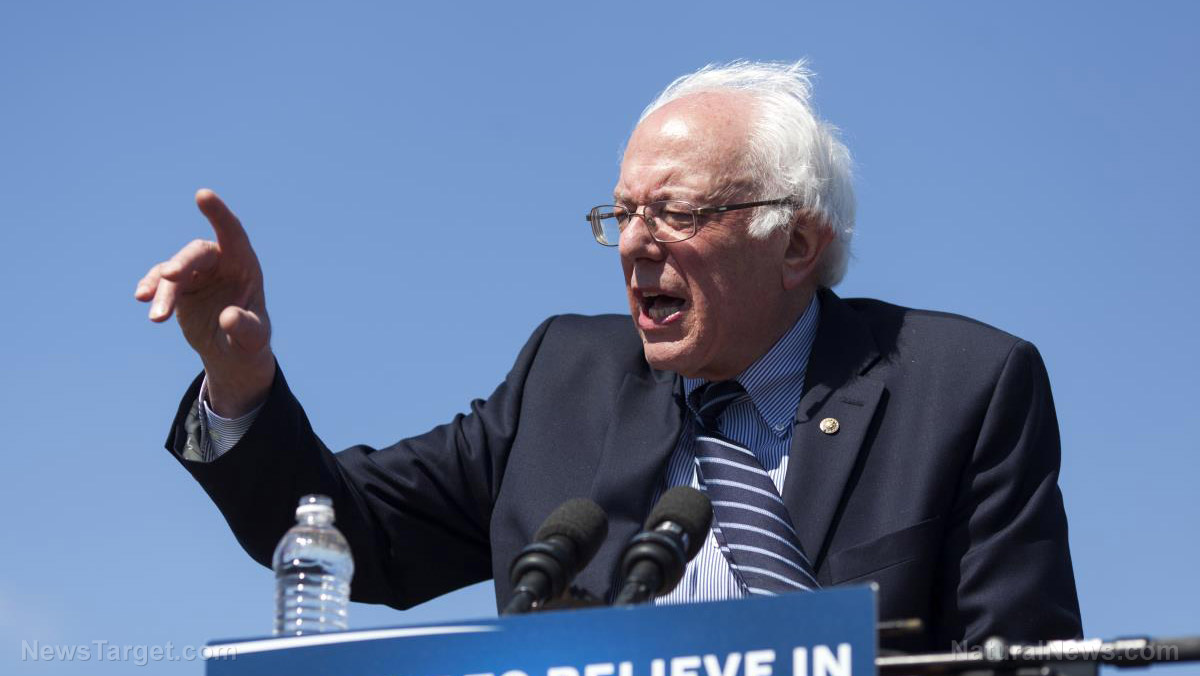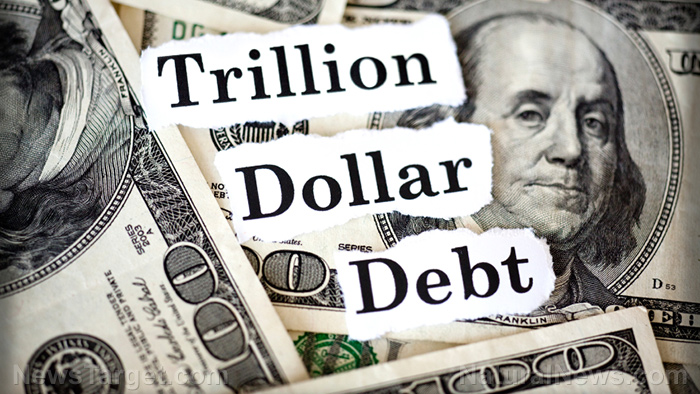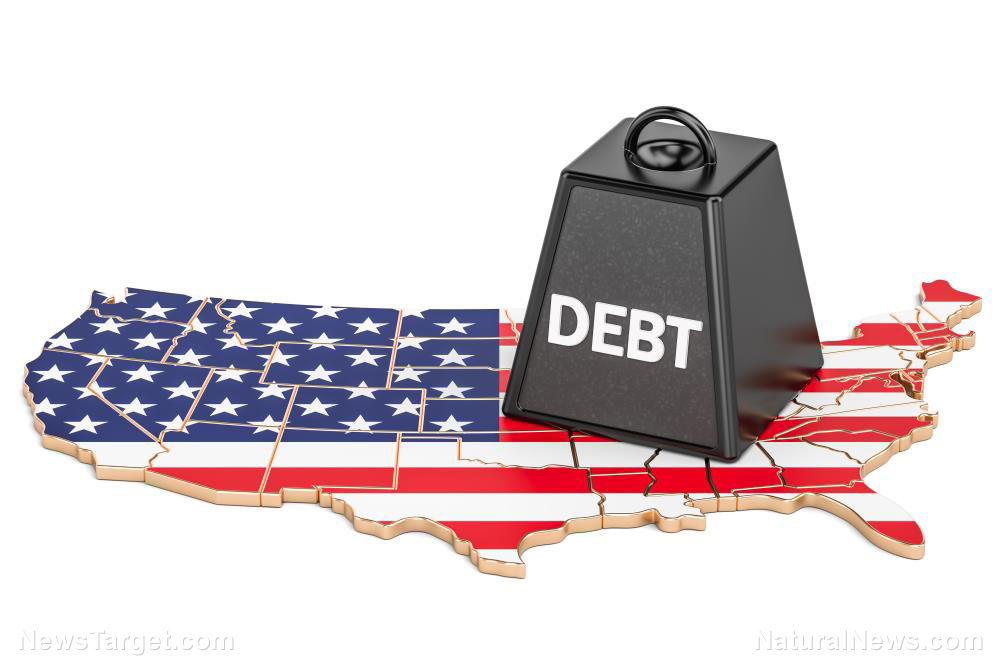CNBC’s Jim Cramer points out the Fed’s liquidity measures won’t work to solve the coronavirus contagion… it’s going to take REAL WORLD solutions
03/23/2020 / By JD Heyes
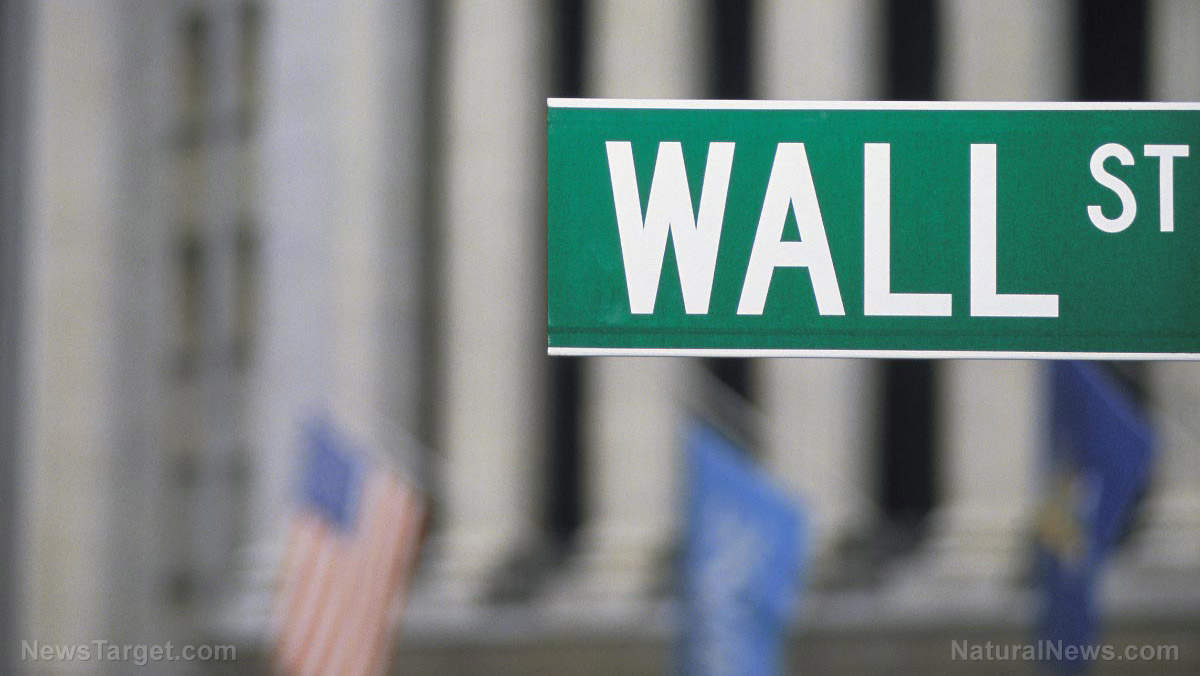
On Monday, Wall Street made another major “correction,” tanking more than 2,100 points largely on fears stemming from the still-spreading Wuhan coronavirus.
And while some analysts saw the market reacting mostly to Saudi Arabia’s attempt to corner the global oil market while punishing Russia and Iran, clearly the virus’ continued spread around the world and various countries’ reaction to it played a major role as well.
For example, the Italian government, which had already quarantined a quarter of its 60 million people, decided to extend it to the entire country after a surge of more than 1,800 cases on Sunday, bringing the country’s total to nearly 9,200. The virus is now present in more than 100 countries and more than 113,000 people globally (as of this writing) have contracted the illness, though the vast majority of them are in China, where the outbreak originated.
As for the markets tanking, CNBC reported that last week, the Federal Reserve cut interest rates by a half-percentage point as the virus continued its spread around the country and the world. But host Jim Cramer said Monday amid the day’s financial turmoil that the virus’ spread is proving that strictly trying to use monetary policy to address market jitters isn’t working.
“This is just the need for fiscal policy,” he said, noting that he has criticized the half-point reduction in rates.
He argued, “The government should actually be stepping up to provide financial help to small and medium-sized businesses that may see significant challenges from the disease’s spread,” the network reported. As an example, he said, those businesses ought to be getting access to zero-interest loans right now.
In addition to the market tanking, global oil prices also fell dramatically as the Saudis announced plans to begin flooding the markets to drive off producers in Russia and harm Iran, a regional rival, economically.
What about geopolitics?
But Cramer, host of the network’s “Mad Money” program, said that the drops in oil prices and Treasury bond yields “are both unprecedented and exceed the chaos of 2007-2009 today.”
Investors Business Daily said that the markets have fallen so much since the outbreak of the virus that in the U.S. anyway, we are on the verge of a bear market — or one that goes dormant, largely, and does not grow or produce wealth:
The Dow Jones today is now down 19% from its all-time high, just shy of the 20% bear market level. The S&P 500 index and Nasdaq composite also are down 19%.
A new stock market rally attempt must begin before investors can start the count for a follow-through day. Keep in mind that a follow-through day isn’t a guarantee of success. The first confirmed stock market rally after a correction is more failure prone, especially after such a violent sell-off.
Some see geopolitics as the biggest catalyst behind Monday’s dramatic stock market plunge, among them, conservative talk host Rush Limbaugh.
He noted on his program as stocks were taking a battering that Saudi Crown Prince Mohammed bin Salman is moving to “corner the oil market” while at the same time drive down competition from Russia and Iran, two strategic oil and geopolitical competitors.
“Mohammed bin Salman is flooding the world oil markets with cheap Saudi crude, and his number one target is Russia, and shale oil — which, to an extent, is the United States. I’m sure that his effort here is not intended to do great damage to us, and I’m sure he’s been telling everybody in Washington, “Stick with me on this. Our common enemy is Russia,’” the host noted.
Time will tell, but one thing’s for certain: The Fed tinkering with interest rates in a sort of wash, rinse, repeat of previous actions during chaos isn’t likely to work with coronavirus.
Sources include:
Tagged Under: bear market, Bubble, central banks, chaos, Collapse, commodities, covid-19, crash, Federal Reserve, finance, Iran, market crash, oil, risk, Russia, Saudi Arabia, stock market, stock prices, tanking, Wall Street, Wuhan coronavirus
RECENT NEWS & ARTICLES
COPYRIGHT © 2017 NATIONAL DEBT NEWS


